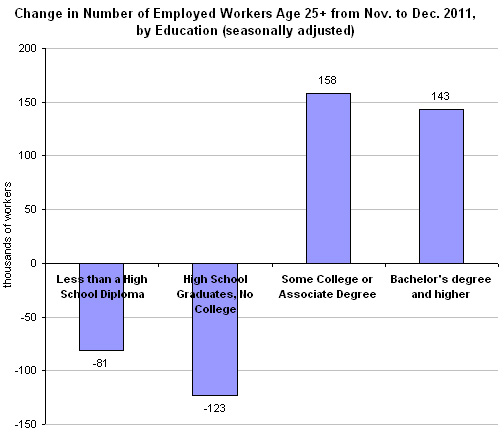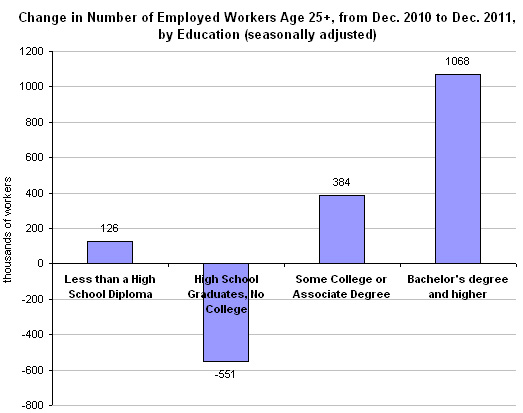Still don’t believe us when we say that college is worth it? Just look at the latest jobs numbers.
In December, workers with bachelor’s degrees or other postsecondary educations gained jobs. On the other hand, the number of workers with high school diplomas or less who were employed fell.
Here are the numbers:
 Source: Bureau of Labor Statistics
Source: Bureau of Labor Statistics
Workers with at least some higher education have been doing better than high school grads for a while now, too.
Over the last year, an additional 1,068,000 bachelor’s degree recipients have found work, for example, while the number of employed workers with no more than a high school diploma fell by 551,000.
Interestingly, though, the least-skilled workers have also added jobs over the last year. The number of high school dropouts who had jobs rose by 126,000 from December 2010 to December 2011:
 Source: Bureau of Labor Statistics
Source: Bureau of Labor Statistics
It’s not clear why those with the very least education would be doing better than those with high school diplomas.
The numbers do support David Autor‘s argument that the work force is hollowing out, producing very low-skill service jobs that generally cannot be done by machines or workers abroad (like food services) and higher-skilled jobs that require greater schooling (like medical jobs).
Article source: http://feeds.nytimes.com/click.phdo?i=592a489250c3557eb0ab7d0a2a25f084